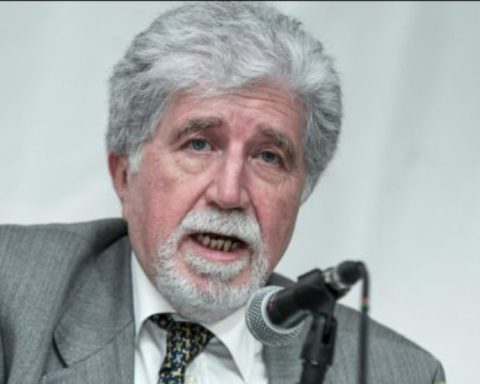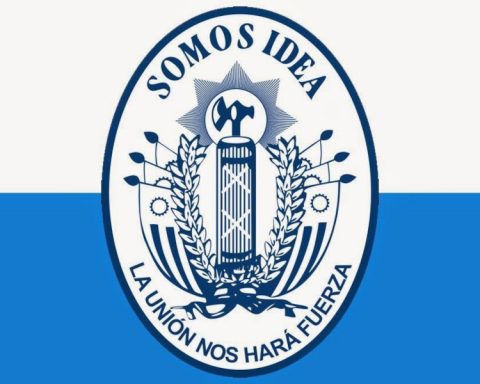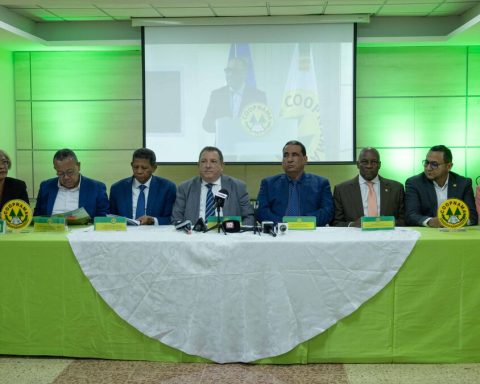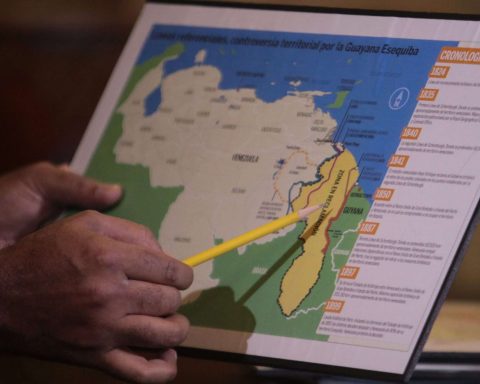This Monday a round table was held within the framework of the Master in Tax that provides the Catholic University of Uruguay (UCU). The activity took place in the building of the UCU Business School (UCUBS) under the slogan International Taxation: challenges and opportunities for Uruguay and its companies.
participated in the same Pía Biestro, Director of Tax Advice, Ministry of Economy and Finance (MEF), Alfredo García Prats, Professor of Tax and Financial Law at the University of Valencia, Daniela Lavin, Latam Head of Taxes for Orders Now, Mónica Ríos, Specialist Transfer Pricing of Tenaris Global Services and the dean of UCUBS, Marcos Soto.
The trigger for the debate was the agreement reached by 136 countries to create a corporate tax of 15% worldwide from 2023a landmark that seeks limit the tax optimization of large multinationals and the rivalry between countries for their taxes.
This pact”will redistribute more than $125 billion in profits from some 100 of the world’s largest and most profitable multinationals to countries around the world“, as announced at the time by the Organization for Economic Cooperation and Development (OECD).
In turn, the pact is made up of two pillars. Pillar 1 reallocates part of the taxes on the profits of large multinational companies depending on the countries of the markets through the creation of a new tax authority. For its part, pillar 2 It will guarantee that multinational companies pay a minimum effective rate of at least 15% on accounting profits in all the countries in which they operate.
The Uruguayan tax regime was again targeted in October after the European Union (EU) include Uruguay in a country list what do not yet comply with all international tax standards, but have committed to and are on track to apply the principles of good tax governance.
How is the government working?
According to Biestro, the deadlines set by the OECD are “very ambitious” and imply “a major challenge for emerging economies to be able to monitor, intervene and make their voices heard”.
These modificationsthey require parliamentary approval and that takes time because there is a political negotiation issue that escapes the Executive and the technicians”, he pointed. “We are facing a very important challenge of being able to reach the established deadlines that I doubt, and more so now in the international moment in which we are, that they can actually be achieved”, he explained.
In this sense, he stated that the Tax Office is working on carrying out various analyzes that they intend to elevate the MEF authorities at the end of March or beginning of April for later share it with the various actors involved and get a “feedback”. “These modifications really need the consensus of all the actors involved,” she pointed out.
On the other hand, the Director of Tax Advice of the MEF indicated that the U Code of Conduct GroupE raised Uruguay two solutions to pick up the observations you made. On the one hand, tax passive income obtained abroad and on the other, exempt passive income with certain conditions.
“The second is the one to which Uruguay adheres because we understand that we must continue defending the criterion of territoriality from the source in the sense that we believe that it is the most convenient as it is a country that imports capital. That is why we believe that certain passive income must be exempted as long as certain conditions of substance are met, and an anti-abuse rule is added to that, ”he said.
the opportunities
For Alfredo García, although there is an uncertainty that “it’s logical” and that it can “delay deadlines”, Uruguay is in a situation “optimal to take advantage of the opportunity offered by this reform of international taxationl”.
“The competitiveness of the states is probably going to shift from the tax ease of tax incentives to other types of dynamics and I think that The states that know how to take advantage of this change in perception and opportunities will probably be able to take advantage of their position in the international capital market as a destination for investments.”, he explained.
According to García, taking advantage of the existence of the minimum tax to “reconsider tax policies” It can be a “important inducement” since the existence of the global minimum tax could generate “additional resources that, well used in terms of spending decisions, can improve the competitive position”. “Ultimately, political and legal stability is going to play a very important role in certain geographic areas to position themselves in this new market,” he added.
attention to limits
The minimum tax apply to multinational companies whose revenues exceed 750 million euros. In that sense, Soto pointed out that “by the dimensions of Uruguay” Few Uruguayan companies will be affected by this tax.
“So we do not have to give up our traditional legislation on incentives because they are going to be aimed at a sector that is not affected by this rule.”, he pointed.
On the other hand, the dean of the UCUBs argued that it is necessary to remember that taxes “they are a part of competitiveness but do not synthesize it” and that in this line Uruguay has “a range of challenges” linked to infrastructure, logistics, public tariffs and energy and fuel costs.
“For example, in countries where energy or fuel costs 30% or 40% less, any fiscal or tax incidence would already be liquefied. Uruguay has a long way to go in what is the business competitiveness not only linked to what the tax policy is but also to its general business development policy“, he claimed.
















